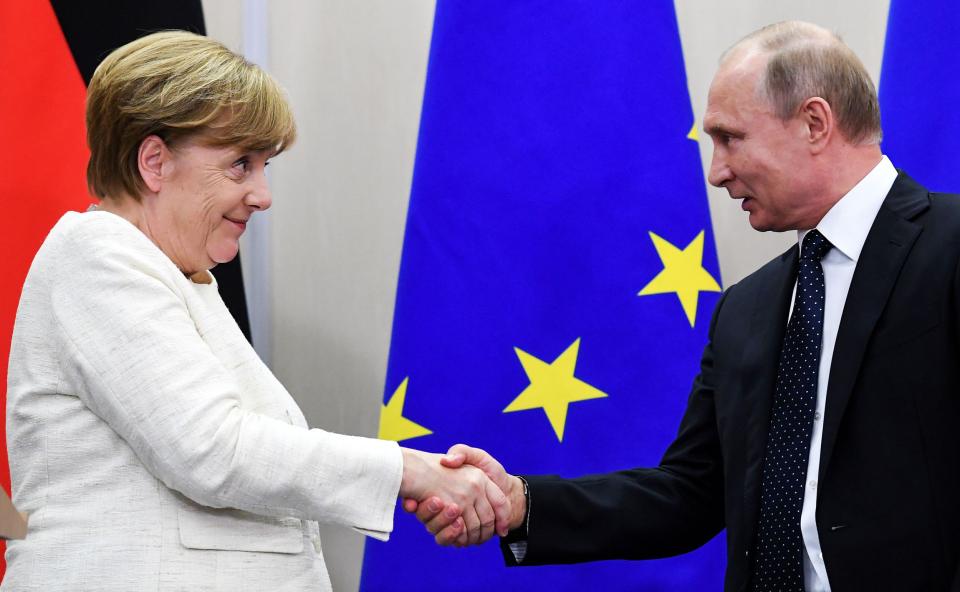Recent trips to Russia by German and French leaders don't necessarily mean Western attitudes towards the country are changing, claims Zhao Jizhou, a researcher at the National Institute for Global Strategy under the Chinese Academy of Social Sciences, writing for Haiwainet.cn, a news site run by
People’s Daily.
Disagreements between Russia and many European countries over global and regional issues will be hard to eradicate, Zhao says. Many result from Russia’s essential differences with the West in ideology and fundamental values, the scholar says. The ball is now in Russia's court, but the nation is unlikely to adopt Western thinking.
The West has not treated Russia as an equal partner after the dissolution of the Soviet Union, instead frequently trying to contain its rise, Zhao says. Whenever Russia has tried to retaliate it has only beefed up its image as a “common enemy” to the West, he says.
Yet opinions towards Russia within Europe are not uniform, the scholar says. While Eastern European countries like Poland and Estonia see Russia as a potential threat, Italy and Greece have advocated relaxing economic sanctions against the country. European countries are thus expected to remain split in terms of Russia policy.

 Old Version
Old Version